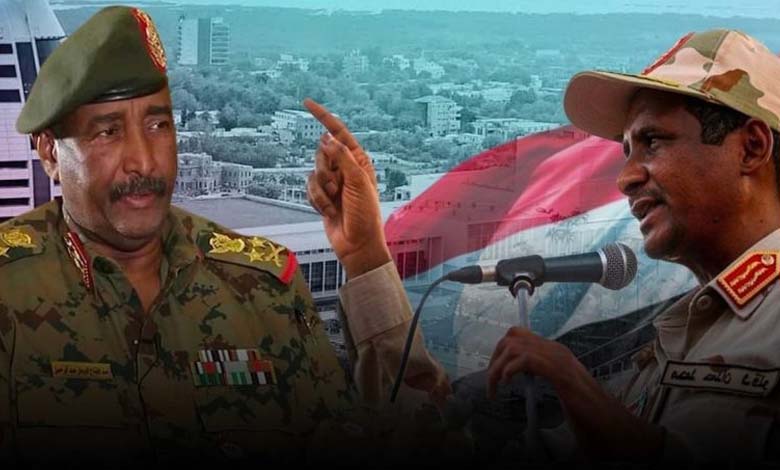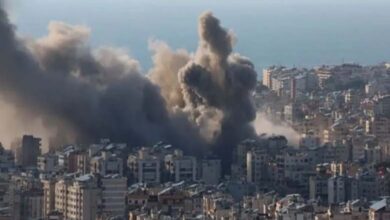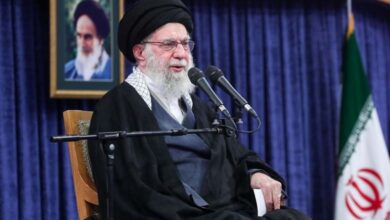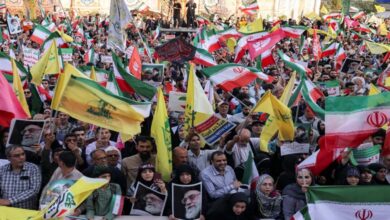Al-Burhan and the Freezing of “IGAD”… Is the peaceful solution moving away from Sudan?

On the brink of a crisis, the future of Sudan appears bleak with little hope on the horizon for a peaceful resolution to end the suffering of Sudanese people—displaced, refugees, and the scarce resources wasted.
The Sudanese Ministry of Foreign Affairs’ decision to freeze dealings with the “IGAD” organization regarding the country’s crisis is seen by experts as “muddying the waters,” considered an “indicator of prolonging the war, expanding its scope, and committing further atrocities.” Prolonging the War According to the writer and political analyst, Abdel Latif Abu Bakr, “Freezing dealings with the IGAD organization means prolonging the war and committing more humanitarian crimes.”
Abu Bakr explained that “leadership within the Ministry of Foreign Affairs associated with the Muslim Brotherhood is behind the recent decision, driven by their continuous pursuit of perpetuating the war, aiming to return to the forefront after a failed 30-year experiment.”
On the other hand, the writer and political analyst, Abbas Abdul Rahman, states that freezing dealings with the IGAD organization could have serious consequences for Sudan, possibly leading to international sanctions. This is especially significant as the Assistant Secretary of State for African Affairs, Molly Phee, welcomed the IGAD summit on January 18th, which will discuss tensions in Somalia, Ethiopia, and the situation in Sudan. The summit emphasizes the necessity to de-escalate and initiate dialogue as a precursor to a ceasefire.
Abdul Rahman pointed out that “Sudan’s leadership is not unified, leading to confusion in decision-making and dealing with regional and international institutions.”
The Foreign Ministry’s statement, freezing dealings with IGAD regarding the current crisis in Sudan, came after the Sovereignty Council, led by Army Commander Abdel Fattah al-Burhan, rejected a new invitation from IGAD to hold a summit to discuss the country’s situation in the coming days.
Meanwhile, Lieutenant General Mohamed Hamdan Dagalo (Hemetti), the commander of the Sudanese Rapid Support Forces, announced his approval to participate in the IGAD summit in the Ugandan city of Entebbe.
The current President of IGAD, Djibouti’s Ismaïl Omar Guelleh, called on IGAD members to hold an extraordinary summit in Uganda at the end of this week to discuss the situations in Sudan and the disputes between Ethiopia and Somalia. This is part of intensive efforts by the organization to press military conflict parties in Sudan to sign a ceasefire agreement, facilitating humanitarian aid to those affected by the conflict.
The previous IGAD summit had called for an immediate meeting between Sudan’s factions to integrate proposals from the Jeddah Platform and the African roadmap to resolve the crisis that has been ongoing since April.
IGAD is a quasi-regional African governmental organization founded in 1969, headquartered in Djibouti. Its members include Ethiopia, Kenya, Uganda, Somalia, Eritrea, Sudan, and South Sudan.
The extraordinary 41st IGAD summit, dedicated to discussing the worsening situation in Sudan, witnessed significant regional and international attendance with the participation of international envoys.
During a session of the 42nd extraordinary session of the IGAD Development Committee on January 18th, Mohamed Hamdan Dagalo, the commander of the Rapid Support Forces, affirmed his commitment to negotiations, dialogue, and peace to outline a better future for Sudan.
Dogolo said: “Firstly, I confirm that the nature of the meeting of IGAD heads or any upcoming negotiations is not a matter related to personal interests, and it should not revolve around the agenda of any particular group. Negotiations must be conducted to achieve a sustainable future for Sudan, leading to a comprehensive solution that includes all Sudanese. The nature of this solution is clear.”
He emphasized that Sudan must quickly transition to a democratic future through free and fair elections at the end of the transitional period, and the establishment of a democratic government that represents the will of the Sudanese people.
“We believe that building a unified and professional army, whose primary mission is to defend the country, away from interference in politics and the economy, is a fundamental requirement for establishing a modern and stable state,” added Dogolo.
Dogolo stressed the necessity of equal representation for all Sudanese in state structures, the army, and institutions without any discrimination. Sudan belongs to all Sudanese, with no citizen of higher or lower status, and the actions of some as if they own Sudan do not achieve peace and stability in the country, where everyone should live justly and without discrimination.
He added, “We enter these negotiations with good intentions and determination to succeed because we realize that the loss of any Sudanese is a tragedy that we must prevent. If we fail in this endeavor, history and the Sudanese people will judge us, and therefore, I affirm my commitment to peace and negotiations to outline a bright future for our beloved country.”
Since mid-April 2023, Sudan has witnessed a war between the army and the Rapid Support Forces, resulting in more than 9,000 deaths, over 6 million displaced and refugees inside and outside the country, according to the United Nations.
According to a statement from the Sudanese Foreign Ministry, the acting Foreign Minister, Ali Al-Sadiq, informed his counterpart in the Republic of Djibouti, the President of the IGAD Ministerial Council, in his capacity as the president of the current IGAD session, of the government’s decision to disengage and freeze dealings with IGAD regarding the current crisis file in Sudan.
The Sudanese Foreign Ministry attributed its decision to what it considered “violations” committed by IGAD, “involving Sudan’s situation in the agenda of the second extraordinary summit of IGAD heads of states and governments scheduled to be held in the Ugandan capital, Kampala, on Thursday, January 18, 2024, without consulting the Sudanese government.”
The government also referred to the invitation extended to Rapid Support Forces Commander Mohamed Hamdan Dogolo, known as “Hemetti,” to attend, considering it a “serious precedent in the history of IGAD and regional and international organizations.”
The Sudanese Foreign Ministry described Hemetti‘s invitation as a “violation of Sudan’s sovereignty and a serious breach of IGAD charters and the rules governing the work of international and regional organizations.”












